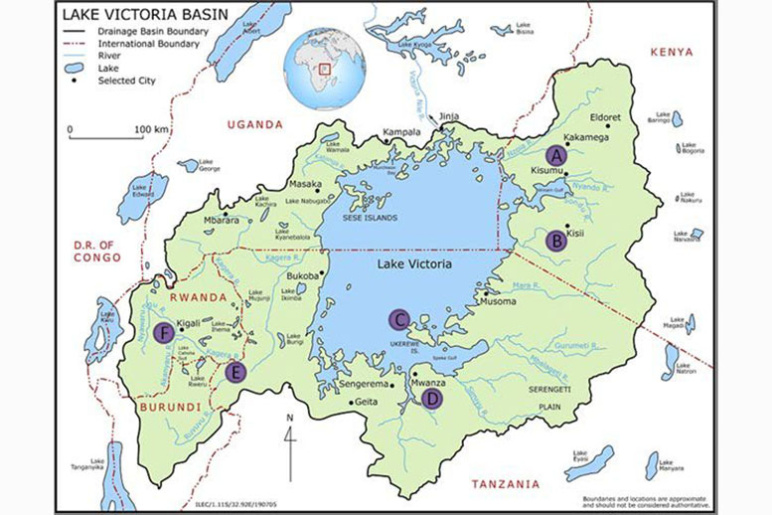Our Research Catalyzing sustainable food and climate systems transitions in the Lake Victoria Basin

Map of Lake Victoria Basin (LVB) of East Africa. Credit: Awange et al., 2013
Principal Investigators
Greg Sixt
- Director, Food and Climate Systems Transformation (FACT) Alliance
- Research Director for Food and Climate Systems
- Abdul Latif Jameel Water and Food Systems Lab
Michael Hauser
- Associate Professor, University of Natural Resource and Life Sciences, Vienna
- Senior Research Associate, World Agroforestry, Nairobi
- Research Affiliate, Abdul Latif Jameel Water & Food Systems Lab
Challenge:
Can we coordinate transboundary land and water management to support transitions towards more resilient, sustainable, and equitable food systems in the Lake Victoria Basin in East Africa?
Research Strategy
- Study how to adapt food systems to climate change in the Lake Victoria Basin
- Support the Lake Victoria Basin Commission (LVBC) and their transboundary land and water management efforts, specifically as they relate to sustainability and climate change adaptation in food systems
- Work with key stakeholders in Kenya, Uganda, and Tanzania to identify specific capacity needs to facilitate land and water management transitions
Project description
The second largest freshwater lake in the world, Lake Victoria straddles three countries (Uganda, Tanzania, and Kenya) and has a catchment area that encompasses two more (Rwanda and Burundi). The Lake Victoria Basin (LVB) is facing a range of climate threats that could significantly impact livelihoods and food systems in the expansive region. For example, extreme weather events like droughts and floods are negatively affecting agricultural production and freshwater resources. Across the LVB current approaches to land and water management are unsustainable and threaten future food and water security. The Lake Victoria Basin Commission (LVBC), a specialized institution of the East African Community (EAC), wants to play a more vital role in coordinating transboundary land and water management to support transitions towards more resilient, sustainable, and equitable food systems. The primary goal of this research will be to support the LVBC’s transboundary land and water management efforts, specifically as they relate to sustainability and climate change adaptation in food systems. The research team will work with key stakeholders in Kenya, Uganda, and Tanzania to identify specific capacity needs to facilitate land and water management transitions. The two-year project will produce actionable recommendations to the LVBC.
This project will be led by Greg Sixt, research manager for climate and food systems at J-WAFS, and the director of the J-WAFS-led Food and Climate Systems Transformation (FACT) Alliance. Sixt will collaborate with Michael Hauser of the University of Natural Resources and Life Sciences, Vienna, and Paul Kariuki, of the Lake Victoria Basin Commission.
News
Additional Details
Impact Areas
- Food
- Climate & Sustainability
Research Themes
- Transforming Food Systems
Year Funded
- 2023
Grant Type
- Other
Status
- Ongoing


